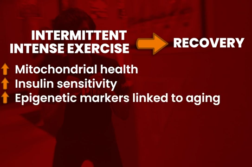Annelise Madison, PhD, Candidate in Clinical Psychology, talks about the possible effects of acid reflux drugs, like PPIs, have on memory.
Have you done research on this particular topic or other topics related to cancer?
MADISON: Yes. I am interested in the gut brain axis. So, how things in the periphery, including the gut, can impact our mood and cognition. PPI use is definitely one of the things, or health behaviors or medications, that you can choose to take that can influence your cognitive function.
For people who are not familiar, what does PPI stand for and what is it?
MADISON: PPI stands for proton pump inhibitors. You might hear them by their names of Nexium or Prevocet, commonly advertised on TV. The idea is that you can take them over the counter, so you don’t even necessarily need a prescription. They’re very widely available and often thought to be very safe.
With that in mind, what kind of impact are these drugs having in your research on cancer patients?
MADISON: The whole goal behind PPI’s is to reduce gastric acid secretion. It’s commonly used to treat Gerd, or reflux disease, where you’re having a lot of acid reflux. The idea here is that chemotherapy non-specifically targets rapidly reproducing cells including cancer cells and cells in your gastrointestinal tract. Chemotherapy can be affecting the cells in your gastrointestinal lining too, causing damage and potentially contributing to acid reflux. So, proton pump inhibitors can be used either because your doctor prescribes them or because you’re choosing to take it over the counter to treat this acid reflux disease. It’s relevant because it’s been investigated as a chemo sensitizing agent, which means it’s changing the pH levels in your blood to make your cells more receptive to the chemotherapy.
What have you found in terms of cognition impairment?
MADISON: We had three different studies among breast cancer survivors that were designed for different purposes. We became interested in the idea that there was a longitudinal association in healthy populations between proton pump inhibitor usage and potential cognitive decline and even dementia. We wanted to investigate that question among a group that was already at risk for cognitive decline and for gastrointestinal issues, which is cancer survivors. We reviewed the data from these three studies and found that these cancer survivors who were taking proton pump inhibitors were reporting more memory and concentration issues. We do believe that self-report cognitive function is conveying something meaningful that can potentially impact their quality of life.
Is there any indication that the cognition impairment is permanent, or is it temporary while people go through treatment while taking the PPI’s?
MADISON: The thing about proton pump inhibitor use was that the FDA approved it typically for short-term usage, but our studies ranged from 6 month in length to about 2 years. We found that most of these individuals were staying on proton pump inhibitors for the entire time. This is considered chronic usage and is hard to get off of once you’re on them because you can have what’s called rebound acid hyper secretion. That is your acid reflux is worse than it was when you started. The issue is that the original clinical trials that showed these were safe drugs to consume, were very short-term in nature. They were typically less than six months. So, we don’t really know what effect this longer-term usage can have in whether it’s translating into permanent cognitive decline or just transient cognitive decline. There’s other research in healthy populations that it does look like this longitudinal association with dementia, which is obviously a permanent diagnosis. That remains to be seen and our results don’t really speak to that. We are noticing the poor reports of cognitive function.
What do these findings suggest long-term?
MADISON: This is very preliminary. It is just observations and associations that we’re finding in three different samples of breast cancer survivors. We need a randomized controlled trial where there’s a placebo and you’re looking at breast cancer survivors over time on this medication to really get a causal mechanism. I think it warrants some caution in using proton pump inhibitors, especially among a population that’s already at risk for gastrointestinal issues and potential cognitive decline. I think we’re seeing too that some gastroenterologists are more hesitant in prescribing or suggesting proton pump inhibitor usage and some of them are citing that connection with dementia. So, this definitely warrants more research in this area.
What would you say to clinicians when you have this population with acid reflux? Do you look for other solutions?
MADISON: Certainly, there are other things like H2 blockers which have been shown to be maybe as effective as proton pump inhibitors. There are also dietary changes that can be made, like suggesting different lifestyle interventions which are beneficial for cancer survivors. With just healthy lifestyle interventions and diet, that can certainly play a huge role in acid reflux. The way that proton pump inhibitors are currently advertised to the public suggests if you’re about to eat a whole plate of pizza, maybe take this beforehand, which was never the intended usage for proton pump inhibitor. There’s some very widespread use among people who are eating a poor diet and I think dietary changes could come into play there and be a safer way to address the problem.
Interview conducted by Ivanhoe Broadcast News.
END OF INTERVIEW
This information is intended for additional research purposes only. It is not to be used as a prescription or advice from Ivanhoe Broadcast News, Inc. or any medical professional interviewed. Ivanhoe Broadcast News, Inc. assumes no responsibility for the depth or accuracy of physician statements. Procedures or medicines apply to different people and medical factors; always consult your physician on medical matters.
If you would like more information, please contact:
Amy Colgan
Sign up for a free weekly e-mail on Medical Breakthroughs called First to Know by clicking here




